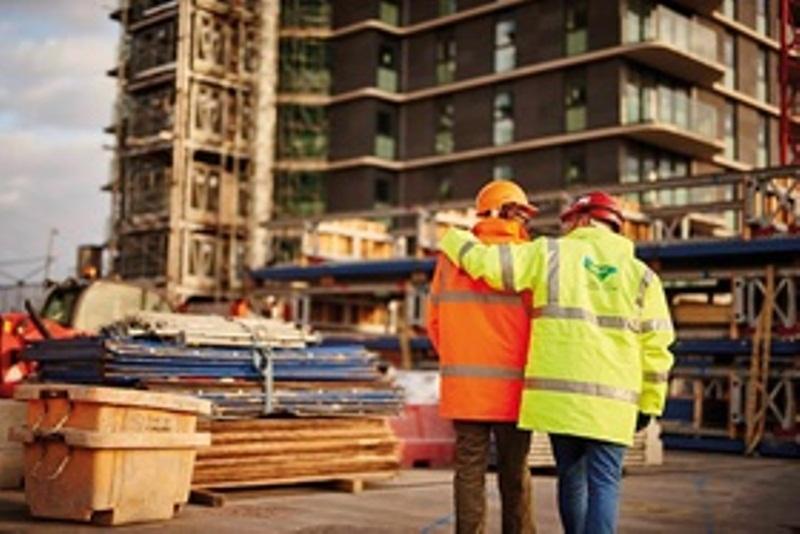Did you know that in CEMEX UK 15% of all our sickness absence is because of some form of stress?  That equals nearly 4,000 days when a colleague didn’t feel fit enough to come to work! Across the industry as a whole 400,000 days are being lost annually due to work related stress, which is why last week’s industry wide ‘stop. make the change’ stand down was so important. For CEMEX the day focused on mental health and fatigue. CEMEX want to help employees by recognising the early symptoms so that we can help individuals. There is a measure your stress levels course available on Shift:
That equals nearly 4,000 days when a colleague didn’t feel fit enough to come to work! Across the industry as a whole 400,000 days are being lost annually due to work related stress, which is why last week’s industry wide ‘stop. make the change’ stand down was so important. For CEMEX the day focused on mental health and fatigue. CEMEX want to help employees by recognising the early symptoms so that we can help individuals. There is a measure your stress levels course available on Shift:
Charlie Schouten, a Journalist from Construction News, went to Dove Holes Quarry to report on the industry wide event and the report makes great reading. Have a look and talk about it with friends and colleagues. Follow this link: https://www.constructionnews.co.uk/analysis/expert-opinion/stop-to-talk-workers-making-a-change/10019169.article
or read the article below:
 STOP AND TALK: WORKERS MAKING A CHANGE
STOP AND TALK: WORKERS MAKING A CHANGE
“Imagine your head is a bucket,” says Hayden Gill, Production Manager at CEMEX’s Dove Holes Quarry in Derbyshire.
“Think of the things that can add to your stress levels,” he continues, before opening it up to the floor. “How would you deal with that stress?”
“Go to the pub,” is the first response from one of the assembled CEMEX staff, and a laugh ripples around the room.
And perhaps that’s the best way to start talking about mental health – in a more light-hearted, open way, because the statistics make, for some, rather grim reading.
The training taking place at Dove Holes is part of CECA’s Stop. Make a Change national safety stand-down, where the industry has been addressing mental health, plant safety, respiratory health and fatigue issues.
The day’s session focuses on mental health and fatigue – both issues of vital importance to CEMEX, as the statistics show. “Around 15 per cent of CEMEX sickness and absence is due to a form of stress,” Mr Gill says. “That’s nearly 4,000 days when an employee didn’t feel fit enough to come to work.”
Opening up
In the construction industry as a whole, 400,000 days are being lost annually to work-related stress, anxiety and depression. Across the country, one in four people will suffer from some form of mental health issue in any given year.
What’s more, 75 per cent of people with a diagnosable mental illness receive no treatment at all – making this training all the more important.
As the session goes on the staff become more open about issues they had experienced in the workplace, particularly around fatigue, with operators on and off the site driving heavy machinery and trucks every day.
“In the construction industry, 400,000 days are being lost to work-related stress, anxiety and depression”.
The discussion turns to a former CEMEX member of staff involved in a vehicle accident caused by fatigue, while a member of staff relates that his brother-in-law had suffered from sleep apnoea and had been in a serious accident as a result.
Making people talk
Personal stories like this, which only emerged after taking the time to talk about mental health and fatigue issues, are what really bring the importance of Stop. Make a Change to the fore.
“If those stats were safety stats the industry would have been all over it,” Mr Gill says. “But that’s why this is important – if you break your leg, you go to the doctor, or if you hurt your teeth you go to the dentist, but people don’t have the same reaction around mental health.”
But perhaps one of the most important aspects, in an industry still prone to a macho culture, is making people talk. “Keep an eye out for your mates,” Mr Gill says. “Don’t just go down the pub and get leathered. Talk.”
And taking the time to talk about health in the workplace is what Stop. Make a Change has been all about.
That change won’t happen overnight, but planting the seed and getting people talking are the first steps towards better mental health and wellbeing.”
